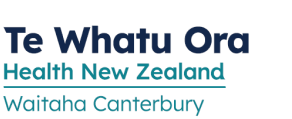What does it do?
Pivmecillinam is an antibiotic used to treat bacterial infections.
Before you start
- Tell your doctor if you have swallowing problems, or if you are allergic to penicillin antibiotics.
- Tell your doctor if you are pregnant, planning to become pregnant, or breastfeeding.
How should you take it?
Take pivmecillinam regularly as directed. Keep taking it until the course is finished, even if you start to feel better. Pivmecillinam can damage your oesophagus (food pipe). To avoid this, take it with a large glass of water. Swallow the tablet whole, do not crush or chew it. Sit or stand upright for at least 30 minutes after taking a dose.
What if you forget a dose?
Take the missed dose as soon as possible and continue as directed.
Can you take other medicines?
Tell your pharmacist or doctor about all medicines or treatments that you may be taking, including vitamins, herbal products or recreational drugs.
What side effects might you notice?
| Side Effects | Recommended action |
|---|---|
|
Symptoms of allergy including: skin rash, itching, swelling, trouble breathing Trouble swallowing, chest pain, indigestion or heartburn (new or getting worse) |
Tell your doctor immediately |
|
Severe or persistent diarrhoea, abdominal pain |
Tell your doctor |
|
Stomach upset |
Tell your doctor if troublesome |
If you notice any other effects, discuss them with your doctor or pharmacist.
Other information:
- Pivmecillinam is not registered for use in New Zealand. Discuss with your doctor.
This leaflet contains important, but not all, information about this medicine.
Prepared by the MyMedicines Committee at Christchurch Hospital, Te Whatu Ora - Waitaha, New Zealand. March 2023
For more general information about this sheet and its contents, see: What does a My Medicines sheet cover?
Te Reo Māori
Te Reo Māori information sheets supported by Health Quality and Safety Commission New Zealand
Web links for this sheet in different formats
Click on buttons to copy web addresses for this leaflet:
If your browser does not automatically copy these links use its copy command instead.
About My Medicines
My Medicines Patient Information Leaflets (PILs) contain important, but not all, information about the medicines they describe.
For more information about the sheets, see: What does a My Medicines sheet cover?
My Medicines is developed by a team at Te Whatu Ora – Waitaha. Our team is made up of doctors, pharmacists, and a non-medical person to help us keep to plain language. We also discuss our information with specialist health professionals or groups when needed

